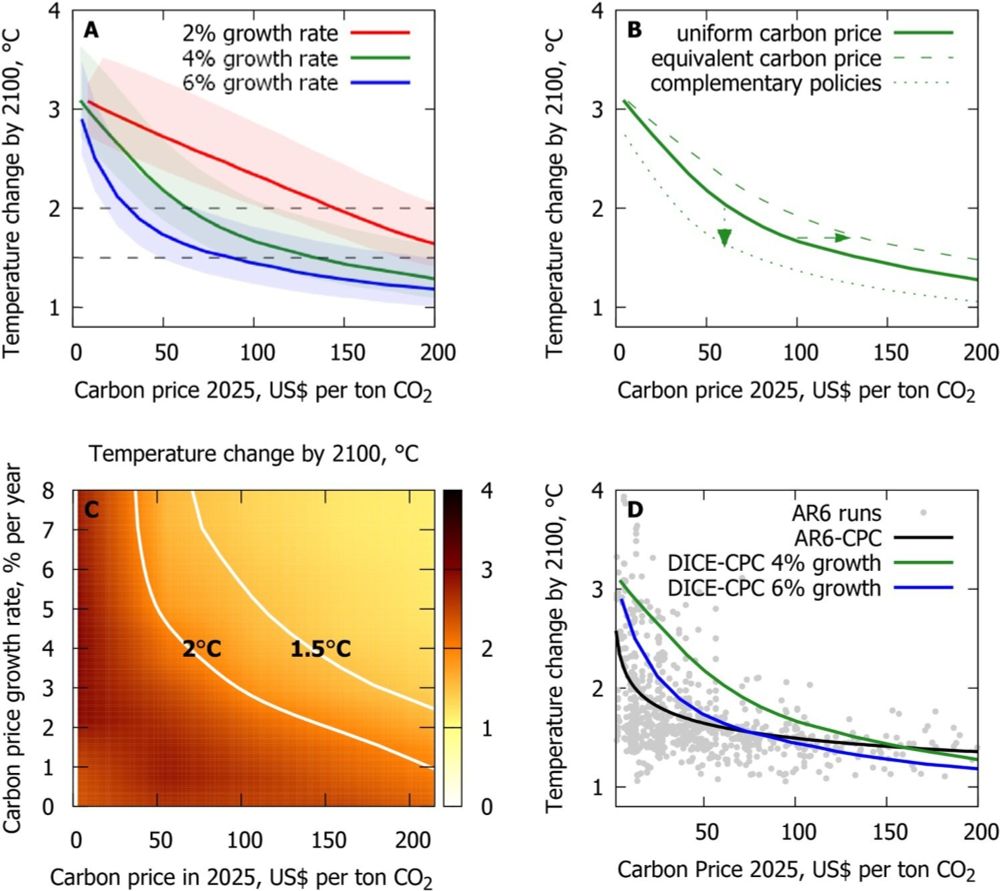
Paywall now lifted: Unredacted legal advice obtained by Newsroom shows officials warned ministers that repealing the ban on offshore oil and gas exploration would likely breach New Zealand's trade agreements. newsroom.co.nz/2024/10/01/g...

Ministers forged ahead with reinstating offshore drilling despite warnings from officials that it probably violates the European or British trade agreements, reports Marc Daalder
The extent of future climate change is (largely) a policy choice. "Climate policy curves highlight key mitigation choices," 2+ years in the making, has found its forever home in...Climate Policy: gwagner.com/cpc joint with Martin Hänsel, Michael Bauer, Moritz Drupp & Glenn Rudebusch

"Price up, quantity demanded down," climate policy edition.
Since submissions on the bill close at midnight, we've decided it's in the public interest to publish the full unredacted document we received to facilitate an informed democratic process, even if it means competitors may use it to write our story as well: www.documentcloud.org/documents/25...
7. Solar manufacturing has always been a horrible business, and that’s unlikely to change. It’s very commoditised, and incremental improvements in cell and module tech make factories obsolete in less than four years.
6. These prices mean that few makers of solar modules are profitable right now. If manufacturers stop selling at these prices, they will permanently lose customers. They are locked into a game of chicken. There will be bankruptcies and eventual price stabilisation.
5. Solar modules now cost 9.5 US cents per Watt (higher in US, India due to trade barriers). Solar panels are cheaper than ordinary fencing materials. For rooftop installs, non-module cost is still $0.50-3.00 per Watt, so further module price declines make little difference.
4. Solar will not solve every problem. But the biggest problem is that our civilisation relies on digging up fossil carbon and burning it, which is destabilising the climate, which multiplies a lot of very unpleasant threats. Solar is part of stopping us needing to do that.
3. We don’t need a solar technology breakthrough. Today, solar developers just need a grid connection and permission to sell electricity, and then they’ll be off building solar plants whether it’s a good idea or not.
2. Nearly 20 years ago when I got this job, I thought maybe solar would one day be 1% of global electricity supply. Last year it was 6% worldwide, and rising fast.
1. To opinions! Solar is the cheapest source of bulk electricity in many countries, and the quickest to deploy, and now you couldn't stop it being built if you wanted to. The limits to PV build in most places are grid access, permitting, and sometimes installation labour.
